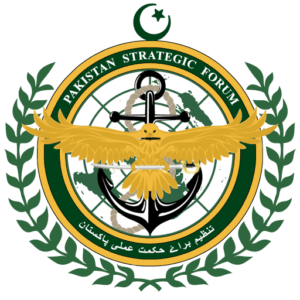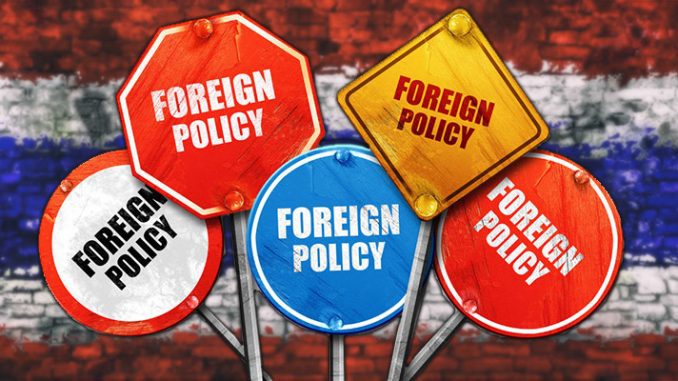Foreign policy stands for the equations of relations a country wants to have with other states both on the regional and global level. In democratic countries, foreign policy is often influenced both by institutions and individuals. Although the basic ingredient in the formulation of foreign policy is the “National Interest”.
A country created based on an ideology must withstand with it and this will highly influence its relations with others. In the following text, we will let you know about different stakeholders who influence and formulate foreign policy.
- People’s Mandate
When people choose a political party or a person to rule them, they directly agree with his ideologies and thoughts. Thus, the ruler represents the collective opinion of the people. He can be a Prime Minister, President, or equivalent representative of Government/State. In Pakistan, PM, and President, represents government and state, respectively. Therefore, they are the main stakeholder involved in the formulation of Foreign policy.
2. Parliament
Parliament also plays a key role in formulating Foreign policy. Cabinet members as well as opposition members are also elected by people and they represent them in Parliament. Debates related to Foreign policy are held in both houses (NA & Senate for the countries like Pakistan) and thereby input from different people is added in it.
3. Foreign Office
Foreign Office comes under the Ministry of Foreign Affairs which is often headed by an elected person in general. He is assisted by bureaucrats i.e. Secretary of Foreign Affairs, Joint Secretary, Deputy Secretary, Directors and Ambassadors as Diplomats and Commissioners in embassies of global countries.
PS (Commissioner is the term used for diplomats but in the ex-British Colonized Countries i.e. United Sub-continent, Australia, New-Zealand, England etc. while ambassador is a general term for a country representative in an embassy)
4. Military
Chief of Army Staff or equivalent head or para-military forces also plays an important role in equating the Foreign policy. It also completes the Power-Trio of a country’s heads. Civil-Military leadership collectively looks after the national security and progress of the country. In Pakistan, COAS also pays foreign visits to the countries where Pakistan has more military collaboration agreements and ties than economical ones
5. Intelligence Agencies
Intelligence agencies, either their names are publicly disclosed or undisclosed, plays a key role in the formulation of Foreign policy. Agents in other countries gather the intel which helps a state to decide the type of relations they can have to address national interest. Their input is also necessary for national security at most rather than diplomatic ties.
6. Stake Holders and Pressure Groups
Foreign policy is also influenced by national Pressure groups including businessmen, civil society, Think tanks, Social and religious groups. These groups actively take part in the betterment of society and have large stakes in developing overall Peaceful environment within the country. For instance, Foreign policy is somehow molded-in a way that facilitates ease in doing business and trade. This creates employment opportunities and helps in GDP growth as well as revenue collections in the form of local tax and foreign reserves.
7. Type of Governments
The type of government in other countries highly affects the relations of countries. The Foreign policy of a diplomatic country is steady and predictable while a country where there is dictatorship or kingdom rule, is unpredictable in general, although dictatorship suits some countries where people are happy with it.
8. Personal Relations of Ruler
Personal affection of a ruler with the head of any other country also affects the FP of a country. i.e. in Pakistan, we had rulers with deep relations with the head of states of Turkey, Saudi Arabia, Qatar, Libya, etc.
9. Public Opinion
Public opinion and affection to a ruler of any country also matters a lot in the formulation of Foreign policy. In past Pakistani nations used to love the Shah Faisal of Saudi Arabia, Malaysian Mahathir Mohammad, Egyptian Mohammad Morsi, and now the President of Turkey Tayyip Erdogan. This affection helps the nations to establish more healthy ties and benefits the bilateral trade as well.
Similarly, in the recent past, Pakistan observed anti-blasphemy movements against the cartoon competition which was going to be held in the Netherlands, and the Foreign Office had to respond actively. Public eased when the matter was represented in the UN and objected for Hate Speech against religious Personality Prophet Muhammad S.A.W.W. This gives a partial example from the recent past about Foreign Relations dependency on Public Opinion.
Factors and Objectives
As told earlier, the building block of Foreign policy is “National Interest”. It includes
- National Security.
- Bilateral Trade.
- Diplomacy.
- Defense and Strategic Partnership.
- Bilateral and Multilateral Agreements.
- International global order/ intergovernmental organizations i.e. UN, OIC, SAARC.
- Geo-politics.
- Public Interests.
- Human Rights i.e. Burma Genocide, Bosnia, Iraq, etc.
- Economy.
- Arms Non-Proliferation.
- Conflicts i-e Palestine, Kashmir.
These are some primary factors that are kept on the table whenever foreign relations are discussed.
#StingRay
#TeamPakistanStrategicForum







